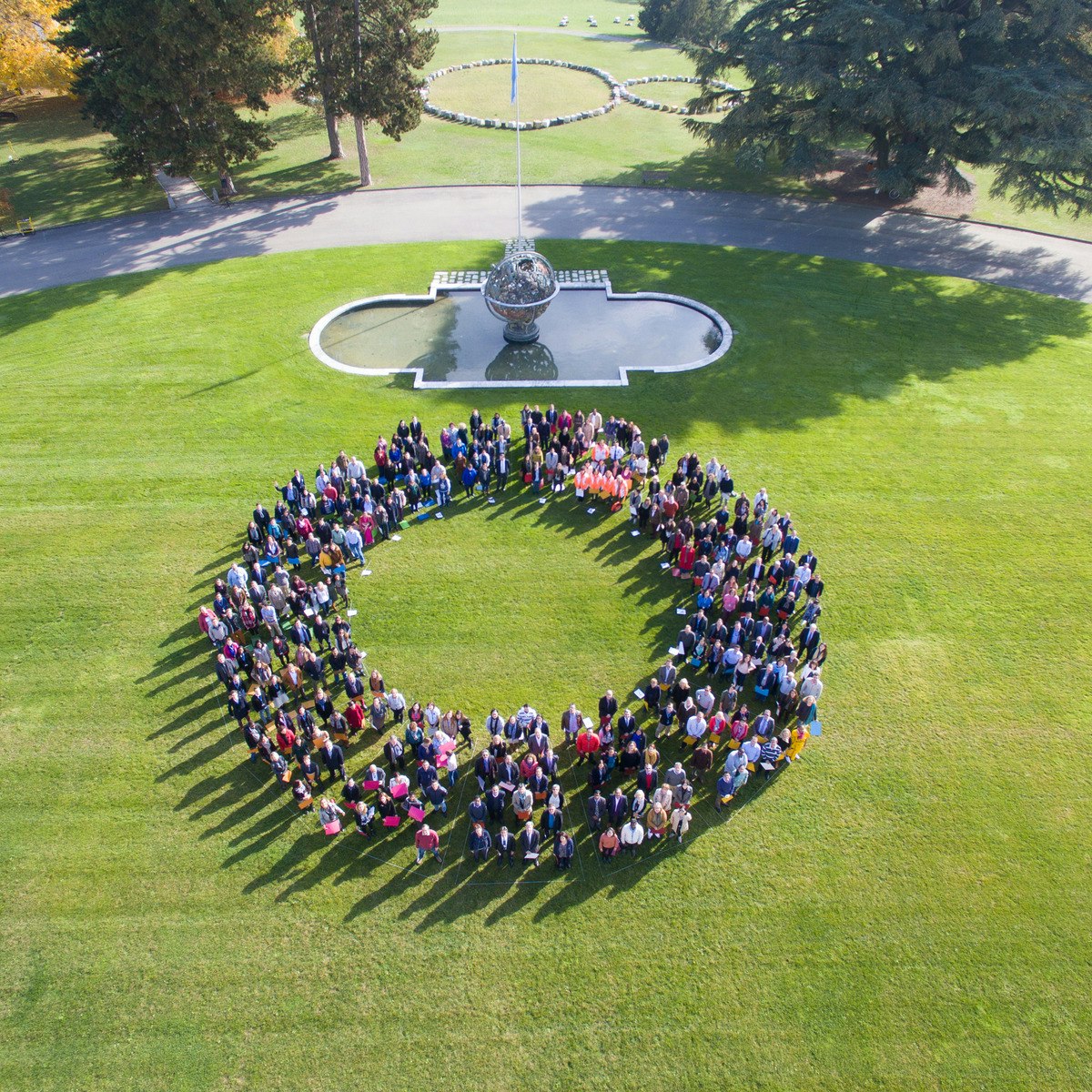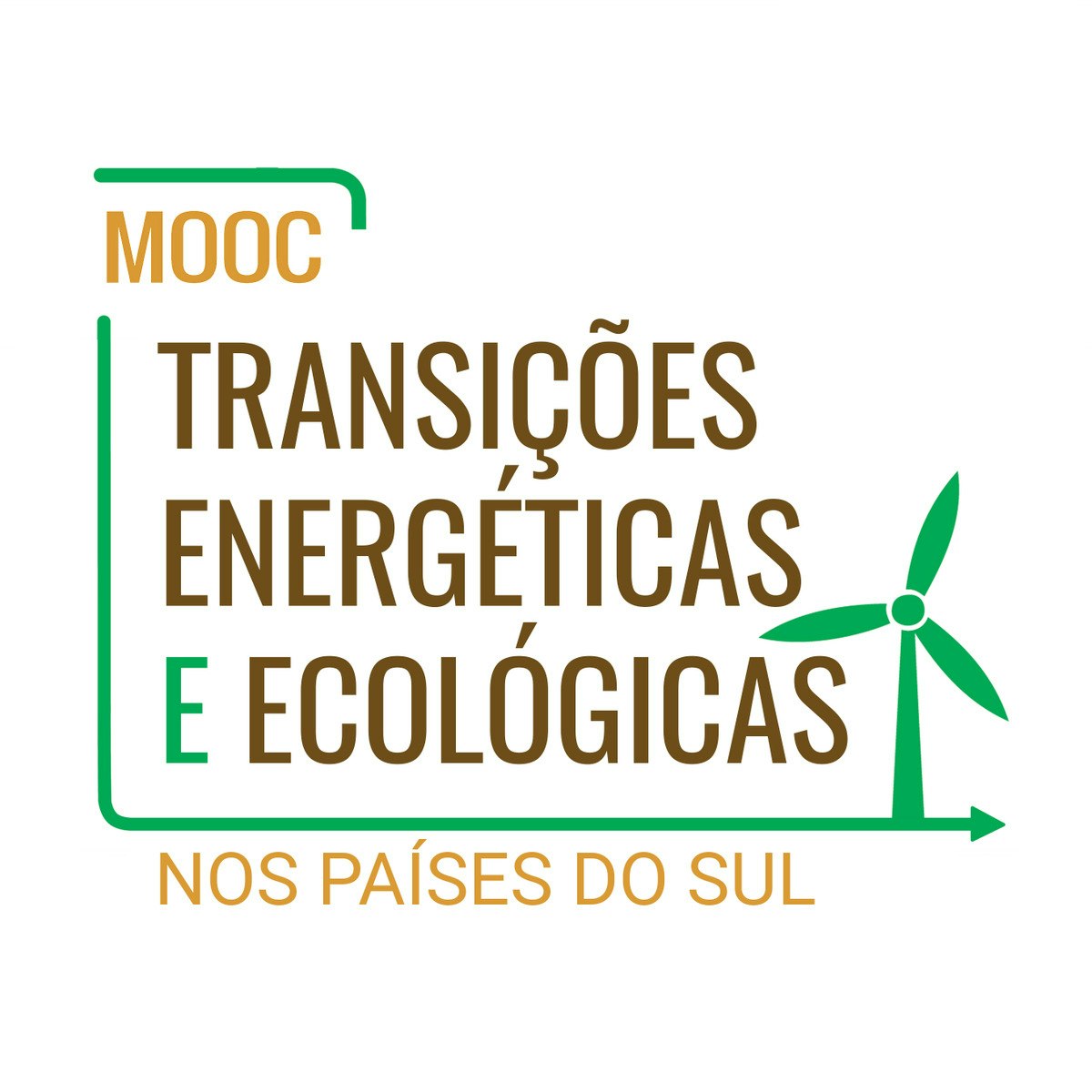Environmental Analyst
Diving Deep: A Career as an Environmental Analyst
An Environmental Analyst plays a crucial role in understanding and mitigating the complex interactions between human activities and the natural world. These professionals are at the forefront of efforts to protect the environment, ensure regulatory compliance, and promote sustainable practices. By collecting and interpreting environmental data, they provide the critical insights needed to inform policy decisions, guide corporate responsibility, and empower public awareness. This career is ideal for individuals passionate about environmental science, skilled in analytical thinking, and committed to fostering a healthier planet.
Working as an Environmental Analyst can be incredibly engaging. Imagine being part of a team that investigates sources of pollution, develops strategies to protect endangered species, or helps communities prepare for the impacts of climate change. The role often involves a mix of fieldwork, laboratory analysis, and office-based research, ensuring a dynamic work environment. Furthermore, environmental analysts often find their work deeply rewarding, as they contribute directly to the well-being of ecosystems and human health, and help shape a more sustainable future for generations to come.
Core Responsibilities of an Environmental Analyst
The day-to-day life of an Environmental Analyst is multifaceted, blending scientific rigor with practical problem-solving. A significant portion of their work involves gathering information about the environment, ensuring that human activities adhere to legal standards, and communicating findings to a variety of audiences. This ensures that decisions impacting the environment are based on sound evidence and that protective measures are effectively implemented.
Data Collection and Analysis: The Foundation of Environmental Insights
Environmental Analysts are information gatherers and interpreters. A key responsibility is collecting diverse types of environmental data. This can involve fieldwork, such as taking soil and water samples, measuring air quality, or conducting ecological surveys. They might also utilize remote sensing technologies, including satellite imagery and drone data, to monitor environmental conditions over large areas. Laboratory testing of collected samples is another critical component, providing precise measurements of pollutants or other environmental indicators.
Once data is collected, analysts meticulously examine and interpret it. This involves using statistical methods and specialized software to identify trends, assess environmental impacts, and model potential future scenarios. The results of these analyses form the basis for reports, recommendations, and action plans. For individuals who enjoy a combination of outdoor work, lab work, and analytical challenges, this aspect of the role can be particularly stimulating.
To gain foundational knowledge in how environmental data is gathered and used, consider exploring courses that cover ecological principles and data collection methodologies. Understanding the scientific basis of environmental monitoring is crucial for any aspiring analyst.
Ensuring Adherence to Environmental Regulations
A primary function of many Environmental Analysts is to ensure that projects and operations comply with local, state, and federal environmental laws and regulations. This involves preparing and reviewing environmental impact statements, permit applications, and compliance reports. They might conduct environmental audits for companies to identify areas of non-compliance and recommend corrective actions.
This responsibility requires a thorough understanding of environmental legislation and the ability to interpret complex regulatory language. Analysts must stay current with evolving regulations and policies. Their work helps organizations avoid penalties, minimize their environmental footprint, and operate in a more sustainable manner. This aspect of the job is critical for protecting public health and natural resources from pollution and other hazards.
For those interested in the regulatory side of environmental analysis, courses focusing on environmental law, policy, and management provide essential knowledge. Understanding the legal frameworks governing environmental protection is key to effective compliance work.
Communicating Findings to Diverse Audiences
Effective communication is a vital skill for Environmental Analysts. They must be able to present complex scientific information clearly and concisely to a variety of audiences, including government agencies, corporate clients, non-governmental organizations (NGOs), and the general public. This often involves writing detailed technical reports, preparing and delivering presentations, and participating in public meetings or hearings.
Analysts may need to explain the potential environmental impacts of a proposed project, the results of a pollution investigation, or the rationale behind new environmental policies. Strong interpersonal skills are also important, as they frequently collaborate with scientists, engineers, policymakers, and community members. The ability to translate technical jargon into understandable terms is crucial for fostering informed decision-making and building consensus around environmental issues.
Developing strong communication and stakeholder engagement skills is paramount. Courses that emphasize technical writing, public speaking, and collaborative problem-solving can be highly beneficial.
Formal Education Pathways
Embarking on a career as an Environmental Analyst typically begins with a solid educational foundation. The specific path can vary, but most roles require at least a bachelor's degree in a relevant scientific field. For those seeking more specialized roles or advancement opportunities, a graduate degree is often advantageous.
Undergraduate Degrees: Building a Scientific Foundation
A bachelor's degree is generally the minimum educational requirement for entry-level positions as an Environmental Analyst. Common undergraduate majors include environmental science, biology, chemistry, geology, geography, environmental planning, or a related natural science field. These programs provide a broad understanding of ecological principles, environmental systems, and scientific methodologies. Coursework often includes subjects like ecology, chemistry, physics, statistics, and environmental law.
Many undergraduate programs also incorporate hands-on learning experiences, such as laboratory work and fieldwork, which are invaluable for developing practical skills. Some universities offer specialized tracks within environmental science, such as environmental policy and economics or conservation biology, allowing students to tailor their studies to their interests. Aspiring analysts should look for programs that offer a strong grounding in scientific principles and data analysis techniques. Consider browsing science courses on OpenCourser to explore various foundational topics.
For individuals starting their higher education journey or considering a switch to this field, online courses can provide an excellent introduction to core concepts and help build foundational knowledge before committing to a full degree program.
Graduate Specializations: Deepening Expertise
While a bachelor's degree can open doors to entry-level roles, many employers, particularly for positions with greater responsibility or specialization, prefer candidates with a master's degree. A master's program allows students to delve deeper into specific areas of environmental analysis. Common specializations include environmental policy, environmental management, geospatial analysis (GIS), hydrology, toxicology, and climate change science.
Graduate programs often involve more intensive research, advanced coursework in quantitative methods, and the completion of a thesis or capstone project based on original research. This advanced training equips analysts with specialized knowledge and analytical skills that are highly valued in the field. A master's degree can lead to roles with greater autonomy, higher salaries, and more opportunities for leadership.
Online platforms offer numerous specialized courses that can complement a graduate degree or provide in-depth knowledge in a specific niche of environmental analysis. These can be particularly useful for professionals looking to upskill or pivot within the field.
These books offer in-depth perspectives on sustainable development and environmental assessment, which are often key components of graduate-level study and professional practice.
PhD Routes for Research and Leadership Roles
For those aspiring to high-level research positions, academic roles, or significant leadership positions within large organizations or government agencies, a Doctor of Philosophy (PhD) is often the preferred qualification. A PhD program in environmental science or a related discipline involves several years of intensive research, culminating in a dissertation that makes an original contribution to the field. This path is suited for individuals with a strong passion for scientific inquiry and a desire to push the boundaries of environmental knowledge.
PhD holders are typically sought for roles that require deep expertise in a specific environmental niche, the ability to lead complex research projects, and the capacity to develop innovative solutions to environmental challenges. They may work in universities, government research labs, international organizations, or as senior consultants. While the path is rigorous, a PhD can open doors to influential positions shaping the future of environmental science and policy. Those considering this path should explore the research methodologies and advanced topics available through online courses to gauge their interest and preparedness.
Even for those not pursuing a PhD, understanding advanced research concepts can be beneficial. Many online courses touch upon cutting-edge research and methodologies used in environmental science.
Skill Development for Environmental Analysts
Success as an Environmental Analyst hinges on a combination of robust technical capabilities and well-honed soft skills. While a strong educational background provides the foundation, continuous skill development is crucial for navigating the evolving demands of the field and making a meaningful impact. This involves mastering specific software and analytical techniques, as well as cultivating interpersonal abilities that facilitate collaboration and effective communication.
Essential Technical Proficiencies
Environmental Analysts rely on a diverse toolkit of technical skills to perform their duties effectively. Proficiency in Geographic Information Systems (GIS) software (e.g., ArcGIS, QGIS) is often essential for mapping environmental data, analyzing spatial patterns, and creating visualizations. Statistical modeling and data analysis software (e.g., R, Python, SPSS, MATLAB) are also critical for interpreting complex datasets, identifying trends, and making predictions.
Familiarity with environmental sampling techniques, laboratory procedures, and data management systems is also important. Depending on the specialization, skills in areas like remote sensing, environmental modeling, or risk assessment might be required. As technology evolves, staying updated with new tools and techniques is a continuous part of an analyst's professional development. Many find that exploring Data Science courses can significantly enhance their analytical capabilities.
Online courses are an excellent way to acquire and sharpen these technical skills. Many platforms offer specialized training in GIS, statistical software, and environmental modeling, often with hands-on projects.
Cultivating Crucial Soft Skills
Beyond technical expertise, soft skills are indispensable for Environmental Analysts. Strong written and verbal communication skills are paramount for conveying complex findings to diverse audiences, including policymakers, clients, and the public. Report writing is a significant part of the job, requiring clarity, precision, and the ability to synthesize information effectively.
Interdisciplinary collaboration is common, so the ability to work effectively in teams with scientists, engineers, planners, and other professionals is crucial. Problem-solving and critical thinking skills are constantly applied to analyze environmental issues and develop viable solutions. Adaptability and a willingness to learn are also key, as the environmental field is dynamic and often presents new challenges. Leadership and project management abilities become increasingly important as analysts advance in their careers.
While often developed through experience, soft skills can also be honed through targeted learning. Courses in communication, project management, and leadership can be beneficial for aspiring and practicing analysts. OpenCourser's Professional Development section offers a variety of courses to enhance these capabilities.
These books offer practical guidance on environmental assessment methods, which often require strong analytical and communication skills to implement and report on effectively.
The Value of Certifications
While not always mandatory, professional certifications can enhance an Environmental Analyst's credentials and demonstrate a commitment to professional standards. Various organizations offer certifications related to specific areas of environmental practice. For example, certifications in hazardous waste management (like OSHA's HAZWOPER), erosion and sediment control, or wetland delineation can be valuable depending on the analyst's specialization.
Some broader certifications, such as the Certified Environmental Professional (CEP) or specific state-level environmental assessment certifications, can also add weight to a resume. The U.S. Environmental Protection Agency (EPA) also offers various training programs and certifications related to specific regulatory programs. Before pursuing a certification, it's wise to research its relevance to your desired career path and industry. Many online courses can also help prepare for certification exams or provide foundational knowledge in certified areas.
Exploring Sustainability courses can provide insights into the broader context in which many environmental certifications are relevant.
Career Progression in Environmental Analysis
The career path for an Environmental Analyst can be diverse and rewarding, offering opportunities for growth, specialization, and leadership. While entry points and progression trajectories can vary based on education, experience, and individual career goals, a general pathway often involves starting in foundational roles and advancing to positions with increasing responsibility and influence. Moreover, the skills acquired as an Environmental Analyst are transferable, opening doors to related fields.
Entry-Level Roles: Gaining Practical Experience
Individuals typically enter the field of environmental analysis in roles such as Environmental Technician, Field Assistant, Lab Assistant, or Junior Environmental Analyst. In these positions, the focus is often on gaining practical experience under the supervision of more senior staff. Responsibilities might include collecting field samples (soil, water, air), conducting basic laboratory tests, assisting with data entry and analysis, and helping prepare sections of reports.
These entry-level roles are crucial for building a strong foundation in environmental monitoring techniques, regulatory requirements, and data handling. It's a period of learning and applying academic knowledge to real-world scenarios. For those starting out, seeking internships or volunteer opportunities while still in school can provide a significant advantage in securing these initial positions. Strong performance and a willingness to learn can quickly lead to more challenging assignments and career advancement. Exploring resources like career development guides can offer valuable insights into navigating these early career stages.
Online courses can be invaluable for those in entry-level roles to quickly get up to speed on specific technical skills or regulatory knowledge required for their projects.
Mid-Career: Specialization and Project Management
With a few years of experience, Environmental Analysts often move into mid-career roles that involve greater responsibility and specialization. This could include positions like Environmental Analyst, Project Scientist, or Environmental Coordinator. At this stage, analysts typically take on more complex projects, manage smaller teams, and have more direct interaction with clients or stakeholders.
Responsibilities might involve designing and overseeing environmental monitoring programs, conducting detailed environmental impact assessments, interpreting complex data sets, writing comprehensive reports, and ensuring regulatory compliance for specific projects. Specialization in areas like air quality, water resources, hazardous waste management, ecological restoration, or environmental policy becomes more common. Strong project management, communication, and analytical skills are critical for success at this level.
For mid-career professionals, online learning can offer opportunities to specialize further, learn new analytical tools, or develop project management and leadership skills. Many platforms offer advanced courses in specific environmental niches.
These books delve into the strategic aspects of environmental assessment and sustainability, aligning with the increased responsibilities of mid-career professionals.
Senior Positions and Leadership Trajectories
Experienced Environmental Analysts can advance to senior-level positions such as Senior Environmental Analyst, Principal Scientist, Program Manager, Director of Sustainability, or Head of Regulatory Affairs. These roles typically involve overseeing large-scale projects, managing departmental budgets, developing strategic environmental policies, mentoring junior staff, and representing their organization in high-level negotiations or public forums.
At this level, leadership, strategic thinking, and deep expertise in one or more environmental areas are essential. Senior analysts often play a key role in shaping an organization's environmental strategy and ensuring its long-term sustainability. Some may also transition into consultancy, academia, or senior government roles, influencing environmental policy and practice on a broader scale. The path to senior leadership often requires a combination of advanced education (such as a master's or PhD), extensive experience, and a proven track record of successful project and team management.
For those in or aspiring to senior roles, continuous learning remains important, particularly in areas like leadership, strategic management, and emerging environmental challenges and technologies.
Pivoting to Related Fields
The skills and knowledge gained as an Environmental Analyst are highly transferable, opening doors to a variety of related career paths. For example, an analyst with strong GIS and data analysis skills might move into a role as a GIS Analyst or Data Scientist in an environmental context. Those with expertise in policy and regulation could transition into roles as Environmental Policy Advisors, Lobbyists, or work in environmental law (with further legal qualifications).
Other potential pivots include careers in urban planning, sustainability consulting, corporate social responsibility, environmental education, or even journalism focusing on environmental issues. The ability to understand complex scientific information, analyze data, communicate effectively, and manage projects are valuable assets in many sectors. This flexibility can be particularly encouraging for those considering a career transition into or from environmental analysis, as the core competencies are widely applicable.
Environmental Analyst in the Global Market
The demand for Environmental Analysts is shaped by a confluence of global trends, including increasing environmental awareness, stricter regulations, and the growing importance of corporate sustainability. Understanding the market dynamics can help aspiring and current analysts navigate their career paths and identify emerging opportunities.
Regional Demand and Growth Trends
The demand for Environmental Analysts is generally robust globally, though specific trends can vary by region. Developed economies with stringent environmental regulations, such as those in the European Union and North America, have historically had a strong need for analysts in areas like compliance, pollution control, and impact assessment. According to the U.S. Bureau of Labor Statistics, employment of environmental scientists and specialists is projected to grow, indicating a steady demand.
Emerging economies are also seeing increased demand as they grapple with the environmental consequences of rapid industrialization and urbanization, and as they begin to implement more comprehensive environmental policies. This creates opportunities for analysts with expertise in areas like sustainable development, resource management, and pollution mitigation in these regions. International organizations also play a role in employing environmental analysts for global projects related to climate change, biodiversity conservation, and sustainable development.
Online courses focusing on international environmental policy or sustainable development in different global contexts can provide valuable insights for those interested in working internationally.
The Influence of ESG on Job Creation
The rise of Environmental, Social, and Governance (ESG) investing and corporate responsibility has significantly boosted the demand for Environmental Analysts. Companies are increasingly under pressure from investors, consumers, and regulators to monitor, report on, and improve their environmental performance. This requires professionals who can collect and analyze environmental data, assess risks and opportunities related to ESG factors, and help develop and implement sustainability strategies.
Environmental Analysts play a key role in helping organizations measure their carbon footprint, manage water and waste, protect biodiversity, and ensure compliance with ESG reporting frameworks. The integration of ESG considerations into business operations is creating new roles and expanding existing ones for analysts across various industries, from finance and manufacturing to energy and technology. This trend is expected to continue as sustainability becomes an increasingly integral part of corporate strategy and value creation. To learn more about this, one might explore options within the Finance & Economics category on OpenCourser.
Courses focusing on ESG principles, sustainability reporting, and corporate social responsibility are highly relevant for analysts looking to capitalize on this growing trend.
These books provide context on sustainable business practices and development, aligning with the growing importance of ESG factors.
Navigating Cross-Border Regulatory Landscapes
Globalization and the transboundary nature of many environmental issues (like climate change and air/water pollution) mean that Environmental Analysts increasingly need to navigate complex international and cross-border regulatory landscapes. Multinational corporations, international NGOs, and intergovernmental organizations require analysts who can understand and apply environmental standards from different jurisdictions.
This can involve comparing environmental impact assessment requirements across countries, tracking international environmental agreements, or advising on compliance with differing emissions standards. Challenges can arise from variations in regulatory stringency, enforcement mechanisms, and data reporting protocols. Analysts with experience or knowledge in international environmental law and policy are well-positioned to address these complexities. For those looking to specialize, the Public Policy section on OpenCourser might offer relevant courses.
Understanding international environmental governance and comparative policy analysis can be enhanced through specialized online courses.
Technological Tools for Environmental Analysts
The field of environmental analysis is increasingly driven by technological advancements. Modern tools and platforms empower analysts to collect more comprehensive data, perform more sophisticated analyses, and develop more effective solutions to environmental challenges. Staying abreast of these technologies is crucial for professionals in this dynamic field.
Remote Sensing: A Bird's-Eye View
Remote sensing technologies, including satellite imagery, aerial photography, and Light Detection and Ranging (LiDAR), have revolutionized how environmental data is collected and monitored. These tools allow analysts to assess large and often inaccessible areas, track changes in land cover and land use over time, monitor deforestation or urban sprawl, assess vegetation health, and map water bodies. Drones (Unmanned Aerial Vehicles or UAVs) are also becoming increasingly common for high-resolution local-scale mapping and monitoring, such as inspecting specific sites for pollution or assessing damage after natural disasters.
Environmental Analysts use remote sensing data in conjunction with GIS software to create detailed maps, analyze spatial trends, and inform environmental models. The ability to interpret and utilize data from these platforms is a valuable skill. For example, satellite imagery can be used to track the extent of wildfires, monitor glacial melt, or assess the impact of agricultural practices on water quality. As remote sensing technology continues to advance, its applications in environmental analysis will only expand. You can learn more about specific software through the Software Tools category on OpenCourser.
Online courses focusing on remote sensing principles, image analysis, and the use of specific platforms like Google Earth Engine are excellent resources for developing these skills.
Machine Learning in Environmental Modeling
Machine learning (ML) and artificial intelligence (AI) are increasingly being applied in environmental analysis to model complex systems and predict environmental changes. ML algorithms can analyze vast datasets to identify patterns, correlations, and anomalies that might not be apparent through traditional statistical methods. This is particularly useful in areas like pollution modeling, where ML can help predict the dispersion of pollutants in air or water based on various factors like weather patterns, emission sources, and topography.
Other applications include predicting the likelihood of wildfires, forecasting species distribution under climate change scenarios, optimizing water resource management, and improving the accuracy of weather forecasts. As an Environmental Analyst, having a foundational understanding of machine learning concepts and how they can be applied to environmental problems can be a significant advantage. While deep expertise in ML may require specialized training, familiarity with its applications is becoming increasingly important. The Artificial Intelligence category on OpenCourser offers courses for various skill levels.
For analysts interested in this cutting-edge area, introductory courses on machine learning and its applications in environmental science can provide a solid starting point.
Leveraging Open-Source Data Repositories
A wealth of environmental data is becoming available through open-source repositories and platforms maintained by government agencies (like NASA, NOAA, EPA), research institutions, and international organizations. These repositories provide access to diverse datasets, including satellite imagery, climate records, air and water quality measurements, biodiversity information, and topographical maps. Environmental Analysts can leverage these resources for their research, assessments, and modeling efforts, often at no cost.
Knowing how to find, access, process, and integrate data from these open-source platforms is a valuable skill. It allows analysts to conduct more comprehensive studies, compare local data with regional or global trends, and enhance the robustness of their findings. Familiarity with data standards, metadata, and data sharing protocols is also beneficial when working with these diverse datasets. Exploring these resources can greatly expand the analytical capabilities of an environmental professional.
Understanding how to work with large datasets and various data formats is key. Online courses in data management and analysis often cover these aspects.
Ethical Considerations in Environmental Analysis
The work of an Environmental Analyst is not just about data and science; it is also deeply intertwined with ethical considerations. Analysts often find themselves navigating complex situations where scientific findings intersect with economic interests, social values, and political agendas. Maintaining objectivity, ensuring transparency, and respecting diverse forms of knowledge are crucial aspects of ethical practice in this field.
Balancing Economic Interests with Ecological Preservation
One of the most frequent ethical challenges for Environmental Analysts involves balancing the economic interests of corporations or development projects with the need for ecological preservation. For example, an analyst might be tasked with assessing the environmental impact of a proposed mine, factory, or infrastructure project that promises economic benefits but also poses risks to local ecosystems or public health.
In such situations, analysts must provide an objective and scientifically sound assessment of potential impacts, even if the findings are unfavorable to the project proponents. This requires integrity and a commitment to upholding environmental protection principles. It also involves clearly communicating risks and uncertainties to decision-makers and stakeholders, enabling them to make informed choices. The pressure to downplay negative impacts or favor economic development can be significant, making ethical fortitude a critical attribute for analysts.
Courses on environmental ethics, policy, and corporate social responsibility can provide frameworks for navigating these complex situations.
These books explore the broader context of sustainability and development, which often involves navigating the tension between economic activity and environmental health.
Ensuring Transparency in Environmental Reporting
Transparency in data collection, analysis, and reporting is a cornerstone of ethical environmental practice. Environmental Analysts have a responsibility to ensure that their methods are sound, their data is accurate, and their findings are presented honestly and without bias. This includes acknowledging uncertainties, limitations in the data, and potential conflicts of interest.
Withholding or manipulating data to support a particular outcome is a serious ethical breach. Openness about methodologies allows for scrutiny and replication by other scientists, which is fundamental to the scientific process. Furthermore, making environmental information accessible to the public and affected communities empowers them to participate in decision-making processes that affect their environment and well-being. According to the World Bank, transparency is key for effective environmental governance.
Understanding best practices in data management, quality assurance, and scientific communication is vital for maintaining transparency. Online courses in research ethics and data integrity can be beneficial.
The Role of Indigenous Knowledge in Environmental Management
A growing area of ethical consideration in environmental analysis is the integration of Indigenous knowledge with Western scientific approaches. Indigenous communities often possess deep, place-based ecological knowledge accumulated over generations, offering valuable insights into sustainable resource management, biodiversity conservation, and climate change adaptation. Recognizing, respecting, and appropriately incorporating this knowledge into environmental assessments and decision-making processes is an ethical imperative.
This involves meaningful consultation and collaboration with Indigenous communities, ensuring that their knowledge is used with consent and that they benefit from its application. It also means acknowledging that Indigenous knowledge systems have their own validity and should not be simply absorbed or validated by Western science. Ethically integrating diverse knowledge systems can lead to more holistic and effective environmental solutions. The Government of British Columbia, for instance, has guidelines on Indigenous Knowledge in Environmental Assessments.
Learning about intercultural communication, participatory research methods, and the principles of Free, Prior, and Informed Consent (FPIC) can help analysts engage respectfully and effectively with Indigenous communities.
Frequently Asked Questions About a Career as an Environmental Analyst
For those considering a career as an Environmental Analyst, several common questions often arise regarding educational requirements, job distinctions, employment sectors, career transitions, the impact of technology, and earning potential. Addressing these queries can help provide a clearer picture of what this career path entails.
Is a master’s degree required for advancement?
While a bachelor's degree in a relevant field like environmental science, biology, or chemistry is often sufficient for entry-level positions, a master's degree can be highly beneficial for career advancement. Many employers prefer candidates with a master's degree for roles that involve more responsibility, specialization, research, or project management. A master's can lead to higher starting salaries and faster progression to senior-level positions. However, significant field experience and a strong track record can sometimes substitute for an advanced degree, especially in certain sectors. For those aiming for high-level research or academic positions, a PhD is generally expected.
How does this role differ from an environmental engineer?
While both Environmental Analysts and Environmental Engineers work to protect the environment, their focus and approaches differ. Environmental Analysts typically focus on collecting and interpreting environmental data, assessing impacts, monitoring compliance, and informing policy. Their work often involves research, fieldwork, lab analysis, and report writing. Environmental Engineers, on the other hand, apply engineering principles to design and implement solutions to environmental problems. This might involve designing pollution control systems, water treatment facilities, or hazardous waste remediation plans. While there's overlap and collaboration, analysts are often more involved in the assessment and planning stages, while engineers are more focused on the design and construction of solutions. Data from the U.S. Bureau of Labor Statistics can provide further detailed distinctions on the engineering role.
What industries hire environmental analysts?
Environmental Analysts are employed across a wide range of industries. Government agencies at the federal, state, and local levels are major employers, hiring analysts for regulatory enforcement, policy development, and environmental monitoring (e.g., EPA, DEC). Environmental consulting firms are another significant sector, providing expertise to various clients on impact assessments, remediation, and compliance. Private corporations in industries such as manufacturing, energy, mining, and construction hire analysts to manage their environmental responsibilities and sustainability initiatives. Non-profit organizations and advocacy groups also employ analysts for research, policy work, and conservation efforts. Additionally, research institutions and universities offer roles for analysts in academic and scientific research.
Can this career transition to climate tech startups?
Yes, a career as an Environmental Analyst can certainly transition to roles within climate tech startups. The skills developed as an analyst—such as data analysis, environmental modeling, understanding of environmental regulations, and problem-solving—are highly relevant to companies developing innovative solutions for climate change mitigation and adaptation. Climate tech startups often require individuals who can assess the environmental benefits of new technologies, navigate regulatory landscapes, conduct market research, or manage sustainability-focused projects. An analyst's scientific background combined with an understanding of environmental challenges can be a strong asset in this rapidly growing sector. Familiarity with tools like those found in the Tech Skills category on OpenCourser can also be beneficial.
What is the impact of AI on job security in the field?
Artificial intelligence (AI) is more likely to be a tool that enhances the work of Environmental Analysts rather than a threat to job security. AI can automate certain data processing tasks, improve the accuracy of environmental models, and help identify patterns in large datasets more efficiently. This can free up analysts to focus on more complex problem-solving, interpretation, strategic planning, and stakeholder engagement. While some routine tasks may be automated, the need for human expertise in interpreting results, understanding context, making ethical judgments, and communicating findings will remain crucial. Analysts who are adaptable and willing to learn how to use AI tools may find their skills even more in demand.
What are the typical salary ranges by experience level?
Salary ranges for Environmental Analysts can vary significantly based on factors such as geographic location, industry, level of education, years of experience, and specific job responsibilities. According to the U.S. Bureau of Labor Statistics, the median annual wage for environmental scientists and specialists was $76,480 in May 2022. Entry-level positions will typically command lower salaries, while experienced analysts in senior or management roles, or those with specialized expertise (e.g., in high-demand areas like ESG or climate risk), can earn significantly more. For instance, the federal government often offers competitive salaries for environmental analysts. It's advisable to research salary data specific to your region and desired sector for the most accurate information.
Pursuing a career as an Environmental Analyst offers a path to make a tangible difference in protecting our planet and promoting sustainable practices. It is a field that blends scientific inquiry with practical application, requiring a commitment to lifelong learning and a passion for the environment. With diverse opportunities across various sectors and the chance to address some of the world's most pressing challenges, it can be a deeply fulfilling professional journey. For those ready to embark on this path, OpenCourser provides a vast catalog of Environmental Sciences courses to build knowledge and skills.








































